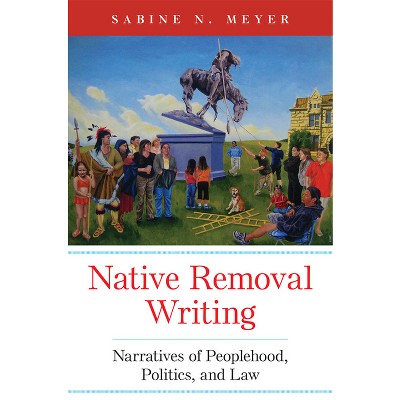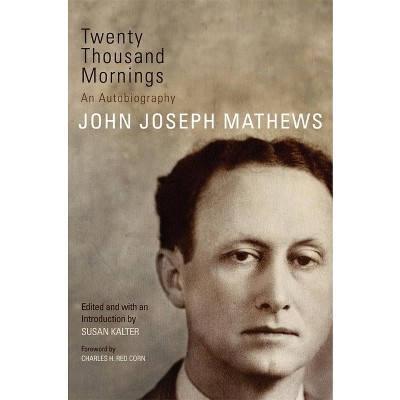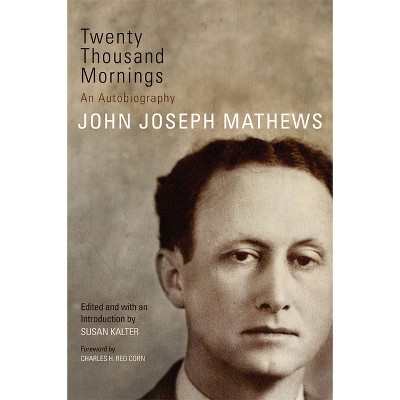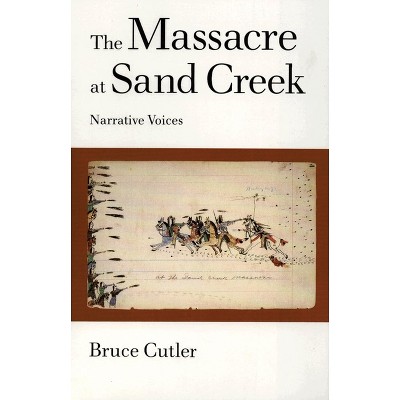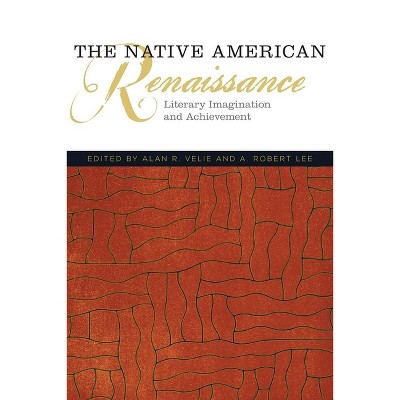Imagining Sovereignty, 66 - (American Indian Literature and Critical Studies) by David J Carlson (Paperback)

$29.95 when purchased online
Target Online store #3991
About this item
Highlights
- "Sovereignty" is perhaps the most ubiquitous term in American Indian writing today--but its meaning and function are anything but universally understood.
- Author(s): David J Carlson
- 242 Pages
- Literary Criticism, Native American
- Series Name: American Indian Literature and Critical Studies
Description
About the Book
In Imagining Sovereignty, Carlson explores sovereignty as a discursive middle ground between tribal communities and the United States as a settler-colonial power. His work reveals the complementary ways in which legal and literary texts have generated politically significant representations of the world, which in turn have produced particular effects on readers and advanced the cause of tribal self-determination.Book Synopsis
"Sovereignty" is perhaps the most ubiquitous term in American Indian writing today--but its meaning and function are anything but universally understood. This is as it should be, David J. Carlson suggests, for a concept frequently at the center of various--and often competing--claims to authority. In Imagining Sovereignty, Carlson explores sovereignty as a discursive middle ground between tribal communities and the United States as a settler-colonial power. His work reveals the complementary ways in which legal and literary texts have generated politically significant representations of the world, which in turn have produced particular effects on readers and advanced the cause of tribal self-determination. Drawing on western legal historical sources and American Indian texts, Carlson traces a dual genealogy of sovereignty. Imagining Sovereignty identifies the concept as a marker, one that allows both the colonizing power of the United States and the resisting powers of various American Indian nations to organize themselves and their various claims to authority. In the process, sovereignty also functions as a point of exchange where these claims compete with and complicate one another. To this end, Carlson analyzes how several contemporary American Indian writers and critics have sought to fuse literary practices and legal structures into fully formed discourses of self-determination. After charting the development of the concept of sovereignty in natural law and its permutations in federal Indian policy, Carlson maps out the nature and function of sovereignty discourses in the work of contemporary Native scholars such as Russel Barsh, Gerald Taiaiake Alfred, D'Arcy McNickle, and Vine Deloria, and in the work of more expressly literary American Indian writers such as Craig Womack, Elizabeth Cook-Lynn, Gerald Vizenor, and Francisco Patencio. Often read in opposition, the writings of these indigenous authors emerge in Imagining Sovereignty as a coherent literary and political tradition--one whose varied discourse of sovereignty aptly reflects American Indian people's diverse political contexts.
Review Quotes
"A force that propelled the rise of modern Native Nations, sovereignty is the glue that holds Indian tribes together. Imagining Sovereignty pulls together contemporary thinking about this threshold concept, its definition, nature, and usages. David J. Carlson explores how law and literature can strengthen the foundation for tribal existence. His book is a must-read for those concerned about indigenous survival and well-being in the United States."--Walter Echo-Hawk, author of In The Light of Justice: The Rise of Human Rights in Native America and the UN Declaration on the Rights of Indigenous Peoples
"Carlson's Imagining Sovereignty is a taut and engaging account of that most revolutionary of concepts--Native sovereignty--as discerned through a close reading of works by leading political and literary writers, including Vine Deloria, Jr., Elizabeth Cook-Lynn, and Gerald Vizenor."--David Wilkins, author of Uneven Ground: American Indian Sovereignty and Federal Law
"Linking literature to life and texts to contexts, David J. Carlson makes a compelling contribution to conversations about 'sovereignty' at the center of Indigenous studies. Imagining Sovereignty is thus both pragmatic and idealistic, scholarly and accessible. It is essential reading in the field."--David L. Moore, author of That Dream Shall Have a Name: Native Americans Rewriting America
Dimensions (Overall): 8.9 Inches (H) x 6.0 Inches (W) x .7 Inches (D)
Weight: .75 Pounds
Suggested Age: 22 Years and Up
Number of Pages: 242
Series Title: American Indian Literature and Critical Studies
Genre: Literary Criticism
Sub-Genre: Native American
Publisher: University of Oklahoma Press
Format: Paperback
Author: David J Carlson
Language: English
Street Date: March 8, 2016
TCIN: 90636881
UPC: 9780806151977
Item Number (DPCI): 247-18-6864
Origin: Made in the USA or Imported
If the item details aren’t accurate or complete, we want to know about it.
Shipping details
Estimated ship dimensions: 0.7 inches length x 6 inches width x 8.9 inches height
Estimated ship weight: 0.75 pounds
We regret that this item cannot be shipped to PO Boxes.
This item cannot be shipped to the following locations: American Samoa (see also separate entry under AS), Guam (see also separate entry under GU), Northern Mariana Islands, Puerto Rico (see also separate entry under PR), United States Minor Outlying Islands, Virgin Islands, U.S., APO/FPO
Return details
This item can be returned to any Target store or Target.com.
This item must be returned within 90 days of the date it was purchased in store, shipped, delivered by a Shipt shopper, or made ready for pickup.
See the return policy for complete information.
Trending Poetry

Bestseller
$24.48
MSRP $35.00
Buy 2, get 1 free select books, movies, music & Funko
4.6 out of 5 stars with 33 ratings

Bestseller
$14.39
Buy 2, get 1 free select books, movies, music & Funko
3.8 out of 5 stars with 63 ratings

$22.80
was $26.60 New lower price
Buy 2, get 1 free select books, movies, music & Funko
5 out of 5 stars with 4 ratings

$23.09
Buy 2, get 1 free select books, movies, music & Funko
4.6 out of 5 stars with 16 ratings

$23.09
Buy 2, get 1 free select books, movies, music & Funko
4.2 out of 5 stars with 19 ratings

Highly rated
$9.85 - $23.09
MSRP $15.99 - $32.99
Buy 2, get 1 free select books, movies, music & Funko
4.8 out of 5 stars with 138 ratings
